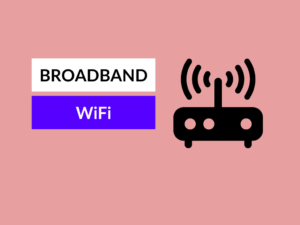Engaging 50 word intro:
Fiber-optic cables are the backbone of modern communication networks. They are used for long distance communication and high-speed data transmission. There are two main types of fiber optics- single mode fiber and multimode fiber. This article will explain the differences between the two and their respective uses.
What is Single Mode Fiber?
Single-mode fiber (SMF) is an optical fiber that carries only one mode of light or wavelength at a time. It has a small core diameter of around 9-10 micrometers, and the light follows a straight path or mode through the center. This type of fiber is used for long-haul communication and high-speed data transmission because it has higher bandwidth and lower attenuation loss than multimode fiber.
Examples of Single Mode Fiber
Optical fiber cables used in undersea communication, high-speed data transmission, and long-distance telephone lines are typical examples of single mode fiber.
Uses of Single Mode Fiber
Single-mode fiber is used in applications that require fast and reliable communication networks over long distances. Some typical uses of SMFs include in:
– Telecommunications networks
– Military
– Research labs
– Cable television networks
– Intelligent transport systems
– Medical equipment
– Oil and gas industries
What is Multimode Fiber?
Multimode fiber (MMF) is an optical fiber that allows multiple modes of light to travel through the cable simultaneously. This is because they have a larger core diameter (usually in the order of 50-62.5 micrometers), which allows the light to bounce off the walls of the cable and travel in multiple paths or modes.
Examples of Multimode Fiber
Local Area Networks (LANs), such as Ethernet and Token Ring, are some of the typical examples of multimode fiber cables used for short distances.
Uses of Multimode Fiber
Multimode fiber is generally used in applications that require faster communication over shorter distances. The following are some of the common uses of multimode fiber:
– Data centers
– Short-haul communication networks
– Security systems
– Distributed sensor systems
– Audio and video systems
– Aircraft
– Ships
Differences between Single Mode Fiber and Multimode Fiber
| Difference Area | Single Mode Fiber | Multimode Fiber |
|---|---|---|
| Core Diameter | 9-10 micrometers | 50-62.5 micrometers |
| Bandwidth | Higher bandwidth, supports long-distance transmission | Lower bandwidth, for short distances |
| Attenuation Loss | Lower attenuation loss, less signal degradation | Higher attenuation loss, signal degradation is more significant |
| Cost | Relatively more expensive | Generally cheaper |
| Connector | Uses a single SC or LC connector | Typically uses an ST or SMA connector |
| Fiber Optic Receiver | Uses a PIN photodetector | Uses an APD photodetector |
| Light Signal Speed | Travels at a faster speed | Travels at a slower speed |
| Distance | Longer distance transmission of up to 40-100 km | Shorter distance transmission of up to 2 km |
| Modal Dispersion | No modal dispersion | Modal dispersion is common |
| Light Source | Uses Laser light sources | Uses LED light sources |
Conclusion
In a nutshell, single mode fiber (SMF) and multimode fiber (MMF) have several differences, including cost, bandwidth, attenuation loss, connector types, and distance transmission capabilities. Therefore, when choosing the right fiber optic cable for your needs, it’s important to consider these differences.
Knowledge Check
1. What is the core diameter of single-mode fiber?
Ans: 9-10 micrometers
2. What is the core diameter of multimode fiber?
Ans: 50-62.5 micrometers
3. Which type of fiber is used for long-haul communication and high-speed data transmission?
Ans: Single-mode fiber
4. What is the typical distance transmission of single-mode fiber?
Ans: Up to 40-100 km
5. What is the typical distance transmission of Multimode fiber?
Ans: Up to 2 km
6. Which type of fiber has higher attenuation loss, single-mode fiber, or multimode fiber?
Ans: Multimode fiber
7. What type of photodetector is used in single-mode fiber?
Ans: PIN photodetector
8. What type of fiber optic receiver is used in multimode fiber?
Ans: APD photodetector
9. Which type of fiber optic cable is commonly used in data centers?
Ans: Multimode fiber
10. Which type of fiber optic cable is commonly used in high-speed data transmission?
Ans: Single-mode fiber
Related Topics
1. Fiber Optic Transceiver: Functions, Types, and Applications
2. Fiber Optic Cable: Construction and Properties
3. Fiber Optic Network: Advantages and Disadvantages
4. Fiber Optic Attenuator: Types and Applications
5. Optical Fiber Splicing: Types and Techniques


